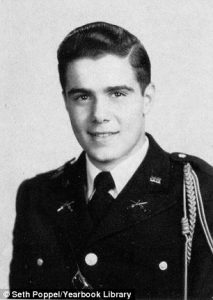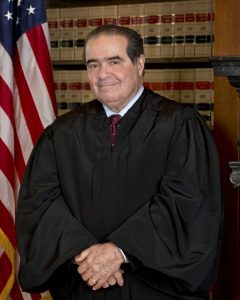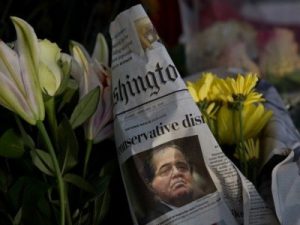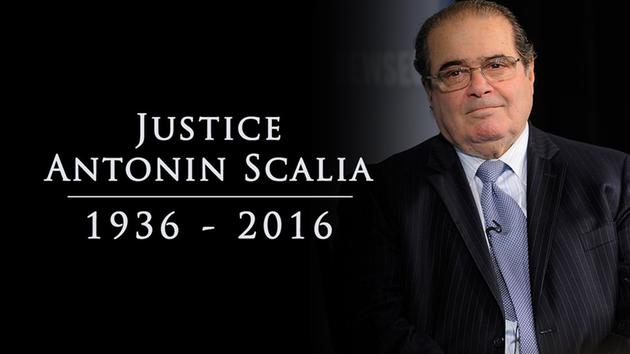By now, you probably know a great deal about Supreme Court Associate Justice Antonin Scalia, who died in his sleep on February 13th, to much surprise, at age 79. Give the press about 15 minutes, and you have an addition to the level of intensity of relations in Washington. With calls to name Scalia’s replacement quickly from the left, calls to invoke the ‘Thurmond Rule’ from the GOP and delay the President Obama’s potential nomination, and a late conspiracy theory surrounding the justice’s death, the swarm of news coverage has been unrelenting. Most audibly, the passing of Scalia undoubtedly adds a volatile lining to the already searing presidential race. His place on the bench vacant, an election looming, and the age-old conflict between strict and loose interpretations resurfacing, the stage is set for an ambivalent election year.
With all of the analyses on his view of the “dead” constitution and the impact of his death swirling around in the world of news, there seems to be something missing from that interpretation of his career that, in actuality, is rather salient: his life as a man of faith and most importantly a Jesuit student. While it’s often taboo to even begin a conversation about a political figure’s (let alone a Supreme Court justice) faith life, it’s necessary to begin a conversation regarding Scalia’s jurisprudence and ideologies, regarded as stridently conservative.
“I love to argue. I’ve always loved to argue. And I love to point out the weaknesses of the opposing arguments. It may well be that I’m something of a shin kicker. It may well be that I’m something of a contrarian.”

A native of Trenton, New York, Antonin Scalia attended public elementary school before receiving a scholarship to Xavier High School, a Jesuit parochial military school in New York City. During his career as a Jesuit student, Scalia played French Horn for his high school band, acted in a play, actively participated in Boy Scouts, and graduated as Valedictorian in 1953. In a CBS Interview in 2008, Scalia divulged that he “was never cool.” He continued, “I was a greasy grind. …I worked really hard. My father, my mother put me to that. I enjoyed that. I don’t like doing anything badly.” His Catholic faith deepening through his Jesuit tutelage, Scalia attended mass regularly and has said he gave the priesthood some thought, but later decided that “He wasn’t calling me.” Scalia elected to continue his education in his attendance at Georgetown University in Washington D.C. where he graduated top of his class, yet again.
You might start to see an ostensible pattern: since Scalia was Catholic, his view on same-sex marriage or abortion, for instance, was duly informed by his staunch Christian upbringing. Under that logic, all of Justice Scalia’s opinions would be opposed to secular considerations, only accommodating his faith.
That notion would be false.
Though Scalia was outspoken on Catholic ethics, morality, and justice in multiple speeches and interviews, he was primarily a “textualist,” the polar opposite of the “living constitution.” (held by Justices Breyer and Ginsburg) Scalia interpreted the laws according to their original meaning in the Constitution. Amongst many other ideologies, Scalia was a stalwart supporter of state’s rights. In Obergefell v. Hodges, the landmark decision legalizing same-sex marriage, Scalia was one of four dissenting voices. Scalia wrote that the matter was to remain in the legislative branch, specifically those in each sovereign state. This wasn’t a matter of faith, but a matter of his interpretation. But, the question still stands, if it didn’t influence his jurisprudence, where did his religion enter his life?
“It has nothing to do with how I decide cases… My job is to interpret the Constitution accurately. And indeed, there are anti-abortion people who think that the constitution requires a state to prohibit abortion. They say that the Equal Protection Clause requires that you treat a helpless human being that’s still in the womb the way you treat other human beings. I think that’s wrong. I think when the Constitution says that persons are entitled to equal protection of the laws, I think it clearly means walking-around persons…”

An article by The Atlantic from 2014 explores this very question, saying that “Scalia has steadfastly argued that his constitutional methodology immunizes him against accusations of religious bias. He is a religious man, yes; but he has a shield: his adherence as an appeals-court judge and then a Supreme Court justice to a mechanical interpretive approach rooted in textualism and original public understanding.” Indeed, this binding force to strict-constructionism exempts him from religious bias on the bench, but it doesn’t exempt him from opining that faith does indeed have a place in the legal world. In 2011, the justice stressed ethical formation a speech at Duquesne University School of Law, saying that “[Law school] has nothing to do with making students better lawyers, but everything to do with making them better men and women,” he said. ““Moral formation is a respectable goal for any educational institution, even a law school.”
Wearing his faith on his sleeve, issuing scathing and combative dissenting opinions to the court, keeping strong with his faith and sticking the realm of textualism, Justice Scalia is a hard puzzle to solve – and that’s what makes him one of the great Supreme Court judges of our time. According to Notre Dame law professor Richard Garnett, Scalia’s legacy will involve “how [he] navigated the relationship between one’s deeply held faith commitments and one’s role as a judge… For him, the way to navigate that relationship, it was not to compromise one’s religious faith or water it down, it was to distinguish between the legal questions the judge has the power to answer and the religious commitments that a judge has the right to hold, just like all of us do.” Scalia’s death thus causes an imbalance in the judicial branch. With cases involving abortion, climate change, or others, an absence of a firm, yet honest voice will be missed.
 So, whether it’s on CNN, on your phone or in a conversation, let Justice Scalia be an example of one who goes against the tide in spite of his unpopular opinions. His example of respecting the ultimate truth at the center of justice was uniquely expressed through him and will be truly missed. The President of Xavier High School, Jack Raslowsky, issued a statement that perfectly describes Scalia’s life as a judge, stating that “He dedicated his life to the service of the nation and worked to make real the words of Xavier’s mission statement, ‘to transform the world for God’s greater glory.’”
So, whether it’s on CNN, on your phone or in a conversation, let Justice Scalia be an example of one who goes against the tide in spite of his unpopular opinions. His example of respecting the ultimate truth at the center of justice was uniquely expressed through him and will be truly missed. The President of Xavier High School, Jack Raslowsky, issued a statement that perfectly describes Scalia’s life as a judge, stating that “He dedicated his life to the service of the nation and worked to make real the words of Xavier’s mission statement, ‘to transform the world for God’s greater glory.’”
Rest in peace, Justice Scalia.






